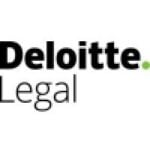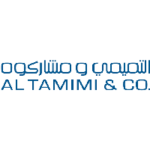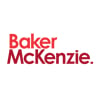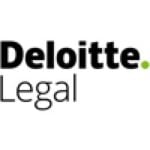-
Is the system of law in your jurisdiction based on civil law, common law or something else?
The Moroccan judicial system includes the first-instance courts (courts of first-instance), second-instance courts (courts of appeal) and, at the top of this organization, there is the Court of Cassation.
For commercial cases, two levels exist:
- Commercial Courts of Appeal, and
- Commercial Courts.
For administrative cases, two levels also exist:
- Administrative Courts of Appeal, and
- Administrative courts.
-
What are the different types of vehicle / legal forms through which people carry on business in your jurisdiction?
Generally speaking, common corporate entities established or acquired by foreign investors in Morocco are as follows:
- Limited liability companies (sociétés à responsabilité limitée or SARL) (Law no. 5-96),
- Simplified Public limited companies (sociétés par actions simplifiée or SAS) (Law no. 19-20),
- Public limited companies (sociétés anonymes or SA) (Law no. 17-95).
The most common vehicle in the context of private equity transactions is an SA as this form allows the implementation of a shareholders’ agreement, IPOs and the issuance of bonds. However, investors can start with an SARL, which can easily be transformed to an SA if a shareholders’ agreement is further needed. Please note that if investors decide to have a SARL with a sole shareholder (SARLAU), the mother entity must not be a single shareholding entity itself.
There are other legal forms (Dahir no. 1-97-49 of 13 February 1997 promulgating Law no. 5-96) but less common:
- general partnership (société en nom collectif),
- limited partnership (société en commandite simple),
- limited joint-stock partnership (société en commandite par actions),
- limited liability company (société à responsabilité limitée),
- joint-stock company (société en participation).
-
Can non-domestic entities carry on business directly in your jurisdiction, i.e., without having to incorporate or register an entity?
There is no general requirement in Morocco for carrying on business on the jurisdiction, however it is recognized that specific measures such as obtaining an authorization are provided for agricultural products, alcohol and tobacco products, and others.
There is no requirement in Morocco for a foreign investor to partner with a local shareholder and no restrictions on the percentage of share capital a foreign investor can hold (except in certain regulated sectors, such as phosphate or an agricultural context).
Also, if the contemplated investment falls within the scope of a regulated activity (e.g. bank, insurance), its completion will be conditional upon the authorization of the relevant regulator (e.g. Bank Al Maghrib for banking and financial activities). Prior authorization of the ministry of economy may also be required when the seller is a state-owned entity.
-
Are there are any capital requirements to consider when establishing different entity types?
Regarding public limited companies, if the company is listed on the stock exchange, the minimum capital is MAD 3,000,000; otherwise it is MAD 300,000.
For simplified public limited companies, limited liability companies, general partnership, the limited partnership, the limited joint-stock partnership, the limited liability company and the joint-stock company, there is no statutory minimum capital requirement for these vehicles, and the share capital is freely determined by the shareholders.
In any cases, 1/4th of the share capital shall be paid-up upon incorporation for cash contributions and 100% for in-kind contributions. The unpaid amount of the shares shall be paid within 3 or 5 years from the incorporation, depending on the type of company.
-
How are the different types of vehicle established in your jurisdiction? And which is the most common entity / branch for investors to utilise?
Several steps have to be followed when setting-up a company:
- obtaining of a negative certificate (certificat négatif) which certifies that the contemplated corporate name is not used by another entity,
- tax registration,
- registration with the Trade register at the commercial court (Tribunal of Commerce),
- registration with the National Social Security Fund (Caisse Nationale de Sécurité Sociale),
- opening of a local bank account, and
- notification of the foreign investment to the foreign exchange office.
The obtaining of the certificate of registration of the company (Modèle 7) takes approximately 15 business days, as from the filing of a complete registration file.
The filing of all incorporation documents can be done at the Regional Investment Center in Casablanca, after making an appointment, which eases the registration process. Said investment center acts as “one stop shop administration” in charge of collecting the required documents and data and doing all the registration towards tax and social authorities.
As mentioned above, the most common vehicle in the context of private equity transactions is a public limited company (SA), as this form allows the implementation of shareholders’ agreement, IPOs and the issuance of bonds.
-
How is the entity operated and managed, i.e., directors, officers or others? And how do they make decisions?
Rules vary depending on each type of corporate vehicle as follows:
- Limited liability company (société à responsabilité limitée): A limited liability company is managed by one or more managers (gérants), who can be appointed by the by-laws (a statutory manager) or properly appointed by a three-quarter (3/4) majority decision of the shareholders. The manager(s) can be a shareholder or a third party but can only be an individual as opposed to a legal entity.
- General partnership (société en nom collectif): A general partnership has a minimum of two partners and no board of directors. It is managed by one or several co-managers appointed in the by-laws or thereafter by the partners. The manager(s) of the company can be individuals or companies.
- Limited partnership (société en commandite simple): The partners are divided into two (2) categories: (i) one or more general partners (commandités) who manage the company and are jointly and severally liable for debts incurred by the company, and (ii) one or more limited liability partners (commanditaires) who are not allowed to participate in the management of the company and whose liability is limited to the contribution they made to the capital.
- Limited joint-stock partnership (société en commandite par actions): As for limited partnership, a limited joint-stock partnership has two kinds of partners: general partners (commandités) and limited liability partners (commanditaires). It must have a minimum of three partners.
- Public limited company (société anonyme): for public limited companies with a board of directors, the company is managed by the Managing Director (directeur général) who can combine the functions of Managing Director and Chairman of the board of directors (and in this case is referred to as CEO or président directeur général). Otherwise, the board of directors can opt for the dissociation of the functions of Managing Director and Chairman of the Board and appoint separately a Managing Director (legal representative of the company who is vested with the broadest powers to act in all circumstances on behalf of the company) and a Chairman of the board of directors (who organizes and directs the work of the Board of Directors, ensuring that the company’s corporate bodies operate in accordance with the principles of good corporate governance, and in particular that directors are able to fulfill their duties). For public limited companies with an executive board and a supervisory board, the company is managed by the executive board. However, if the share capital of the company is less than MAD 1,500,000, the executive board can be replaced by a single chief executive. The members and the president of the executive board are appointed by the supervisory board.
- Simplified Public limited company (société par actions simplifiée): The company must be managed by a president, who can be either an individual or a legal entity.
-
Are there general requirements or restrictions relating to the appointment of (a) authorised representatives / directors or (b) shareholders, such as a requirement for a certain number, or local residency or nationality?
Rules vary depending on each type of corporate vehicle as follows:
- Limited liability company (société à responsabilité limitée):
- A limited liability company is managed by one or more managers (gérants), who can be appointed by the by-laws (a statutory manager) or properly appointed by a three-quarter (3/4) majority decision of the shareholders. The manager(s) can be a shareholder or a third party but can only be an individual as opposed to a legal entity.
- The maximum number of shareholders in a limited liability company is 50. If this number is exceeded, the limited liability company shall become a public limited company within two (2) years. SARL can have only one shareholder (SARLAU), however the mother entity must not be a single shareholding entity itself.
- General partnership (société en nom collectif):
- A general partnership has a minimum of two partners and no board of directors. It is managed by one or several co-managers appointed in the by-laws or thereafter by the partners. The manager(s) of the company can be individuals or companies.
- Limited partnership (société en commandite simple):
- The partners are divided into two (2) categories: (i) one or more general partners (commandités) who manage the company and are jointly and severally liable for debts incurred by the company, and (ii) one or more limited liability partners (commanditaires) who are not allowed to participate in the management of the company and whose liability is limited to the contribution they made to the capital.
- The Company has a minimum of two (2) partners, one commandité and one commanditaire.
- Limited joint-stock partnership (société en commandite par actions):
- As for limited partnership, a limited joint-stock partnership has two kinds of partners: general partners (commandités) and limited liability partners (commanditaires). It must have a minimum of three partners. The difference with a société en commandite simple is that the capital of a limited joint-stock partnership is divided into shares.
- Public limited company (société anonyme):
- A public limited company must have at least five (5) shareholders, who can either be corporate entities or individuals. There are two (2) possible governance structures:
- Société anonyme with a board of directors (conseil d’administration): The board of directors must be composed of a minimum of three (3) and a maximum of twelve (12) members (administrateurs) which may be increased to fifteen (15) members if the company is listed in the stock exchange. Each board member must be a shareholder and own a number of qualifying shares in the company determined by the by-laws. The first members are appointed by the by-laws for a maximum period of three (3) years. When appointed during the course of the business, their term can last up to a maximum of six (6) years.
- As above mentioned, the public limited company is managed by the Managing Director (directeur général) who can combine the functions of Managing Director and Chairman of the board of directors (and in this case is referred to as CEO or président directeur général). Otherwise, the board of directors can opt for the dissociation of the functions of Managing Director and Chairman of the Board and appoint separately a Managing Director and a Chairman of the board of directors.
- Société anonyme with an executive board and a supervisory board (directoire et conseil de surveillance)
- The executive board (directoire) has a maximum of five (5) members. But should the company be listed on a stock exchange, this number may be increased up to seven (7). The members of the directoire are not required to be shareholders of the company.
- However, if the share capital of the company is less than MAD 1,500,000, the executive board can be replaced by a single chief executive. The members and the president of the executive board are appointed by the supervisory board. The executive board manages the company.
- The supervisory board (conseil de surveillance) must be composed of at least three (3) but no more than eighteen (18) members. These members are required to be shareholders of the company and hold qualifying shares (same as the administrateurs). Members of the supervisory board cannot be members of the executive board. Members of the supervisory board are appointed through the by-laws when the company is set up, and thereafter by the shareholders and their term cannot exceed six (6) years. The supervisory board supervises the executive board.
- Simplified Public limited company (société par actions simplifiée):
- The governance rules of the simplified public limited company can be set out in the by-laws which allow quite flexibility. The company must be managed by a president, who can be either an individual or a legal entity.
-
Apart from the creation of an entity or establishment, what other possibilities are there for expanding business operations in your jurisdiction? Can one work with trade /commercial agents, resellers and are there any specific rules to be observed?
Apart from the creation of an entity or establishment, there are other possibilities to expand business operations such as:
- Commercial agents: The commercial agency contract is a mandate by which a person, without being bound by a contract of employment, undertakes to negotiate or conclude, on a regular basis, purchases, sales or, in general, any other commercial transactions in the name and on behalf of a trader, a producer or another commercial agent, who undertakes, for his part, to remunerate him.
- Brokerage: Brokerage is the agreement whereby a broker is instructed by a person to seek out another person in order to put them in contact with a view to concluding a contract.
- Commission: commission is the contract by which the commission agent receives authority to act in his own name on behalf of the principal.
-
Are there any corporate governance codes or equivalent for privately owned companies or groups of companies? If so, please provide a summary of the main provisions and how they apply.
There is a Moroccan code of corporate governance best practices, the drafting of which was supervised by the CGEM and the Ministry of Economic and General Affairs, which promotes good governance practices within companies in both the public and private sectors. It is not really a code laying down the rules to be followed, but rather guidelines on the subject.
Otherwise, principal sources of guidance on corporate governance/directors’ duties are provided for in the following laws:
- Law no. 5-96 relating to the general partnership (société en nom collectif), the limited partnership (société en commandite simple), the limited joint-stock partnership (société en commandite par actions), the limited liability company (société à responsabilité limitée) and the joint-stock company (société en participation), as amended and supplemented; and
- Law no. 17-95 relating to public limited companies (sociétés anonymes), as amended and supplemented.
Please refer to our answers to questions 6 and 7 above for a summary of the main applicable governance provisions.
-
What are the options available when looking to provide the entity with working capital? i.e., capital injection, loans etc.
A contribution can be made in three different ways:
- In cash: This is a sum of money that the shareholder pays to the company in return for the delivery of shares. The sums contributed must be deposited in a bank account opened in the name of the company and frozen until it is registered in the Commercial Register. In certain types of company (limited liability companies, public limited companies, partnerships, etc.), it is possible to pay up only part of the amount when the company is incorporated. However, the Articles of Association must specify the terms and conditions for the payment of contributions by shareholders.
- In kind: This refers to any contribution of assets other than cash. It may be an individual asset, or a right, or a group of assets and rights. Each contribution in kind must be valued in the Articles of Association (possibly by a contributions auditor). The contribution is made either in full ownership or only in beneficial ownership, or in bare ownership.
- In “industry”: This involves a shareholder making available to the company all or part of his or her technical knowledge, experience, know-how or even reputation. This type of contribution does not contribute to the formation of the company’s capital and cannot therefore give rise to the allocation of shares, which represent fractions of the company’s capital. Contributions in kind are therefore excluded in limited companies, unlike partnerships, where they are permitted. These contributions give the right to share in profits (and contribute to losses). They also entitle the holder to vote at company meetings. A commercial company cannot be formed solely from this type of contribution.
The other option to provide the entity with working capital through a shareholder current account.
First, it is possible to make a contribution of a shareholder current account receivable. As part of a capital increase, a capital increase by offsetting a receivable is permitted under Moroccan corporate law.
The other way to use the shareholder current account as an option to provide the entity with working capital is a contribution of a shareholder current account. This contribution is an advance granted by a shareholder to the company without the need for a loan agreement. One or more shareholders, whether individuals or legal entities, make a loan of a certain sum of money available to the company under a statutory or contractual current account commitment. Legally, these advances are considered to be interest-bearing loans. The lenders thus have the status of company creditors.
-
What are the processes for returning proceeds from entities? i.e., dividends, returns of capital, loans etc.
Repayment of capital is only possible when the company is liquidated, if there is any capital left over after all the company’s creditors have been paid.
The main process for returning proceeds from entities is the dividends distribution. At the end of the financial year, the Board of Directors determines the net profit and draws up a draft appropriation of the said profit, which it submits to the Ordinary Annual General Meeting. The Ordinary Annual General Meeting, after approving the financial statements for the year and noting the existence of distributable income determines the portion to be allocated to shareholders in the form of dividends. The procedures for the payment of dividends approved by the General Meeting are set by the General Meeting itself or, failing this, by the Board of Directors. Dividends must be paid within nine months of the end of the financial year. However, this period may be extended by order of the President of the Court, acting in summary proceedings, at the request of the Board of Directors.
In case of a shareholder current account, the lenders have the status of company creditors. The lending shareholder may recover its funds at any time by simple request to the company, unless there are specific provisions to the contrary in the Articles of Association or in the current account agreement. This stipulation takes the form of a current account blocking clause inserted into the agreement signed between the shareholder and the company. This blocking clause makes the sum unavailable for a stipulated period, i.e. the lending partner cannot recover his funds before the expiry of the said period, thus enabling the company to have genuine permanent capital at its disposal.
Please note that there are specificul rules set by the Moroccan foreign exchange office. From our experience, the maximum interest rate authorized by the Moroccan foreign exchange office is 6%/7% (which has to be justified), beyond which it’s difficult to obtain an authorization, and if you proceed without authorization, you won’t be able to repatriate dividends.
-
Are specific voting requirements / percentages required for specific decisions?
Yes – In accordance with article 110 of law no. 17-95 relating to public limited companies (the 17-95 Law), only the Extraordinary General Meeting is empowered to amend the bylaws, and such decisions must be taken by a two-thirds (2/3rd) majority of shareholders present or represented. However, article 114 of the 17-95 Law provides that this two-thirds threshold may be increased by the articles of association.
Moreover, the following decisions require the unanimous vote of the shareholders:
- Article 428 of the 17-95 Law: Transformation of any corporate form into a public limited company (société anonyme) ; and
- Article 431 of the 17-95 Law: Any amendment to the articles of association containing an (i) inalienability, (ii) approval or (iii) exclusion clause
Similar rules apply to limited liability companies (extraordinary collective decisions are valid only if they are adopted by shareholders representing at least three quarters (3/4) of the shares) and :
- any decision to convert into a general partnership must be adopted with the unanimous agreement of the shareholders;
- any decision to convert into a société en commandite simple or société en commandite par actions must be adopted with the unanimous agreement of the future commandités and a three-quarters majority of the future commanditaires;
- any decision to increase capital by raising the par value of shares must be adopted with the unanimous agreement of the shareholders;
- may be adopted by shareholders representing at least half of the shares, any capitalization of profits, premiums or reserves.
In addition, shareholders’ agreement may provide for some specific decisions (known as strategic decisions or board reserved matters) for which a supermajority or the presence of representatives of a shareholder is required.
-
Are shareholders authorised to issue binding instructions to the management? Are these rules the same for all entities? What are the consequences and limitations?
No provision of Moroccan law allows shareholders to issue binding instructions to the management. However, for example, for public limited companies, the members of the Board of Directors or, where applicable, the Management Board, the Managing Director/CEO are appointed directly by the General Meeting of Shareholders and their powers can be limited by specific decisions/board reserved matters, or by requiring joint signatures for decisions exceeding certain thresholds.
-
What are the core employment law protection rules in your country (e.g., discrimination, minimum wage, dismissal etc.)?
The core employment law protection rules in Morocco include:
- Anti-discrimination:
- Article 9 of the Labor Code prohibits salary discrimination based on based on race, color, gender, disability, marital status, political opinion, trade-union membership, national or social origin. The violation of the prohibition set under article 9 of the Labor Code is subject to a fine of MAD 15,000 to 30,000 (Approx. USD 1,500 to 3,000). For subsequent offences, the aforementioned fine is doubled.
- Minimum wage:
- Morocco has a national minimum wage that employers must adhere to.
- Articles 356 to 360 of the Labour code provide for the employers’ requirement to comply with the national minimum wage in Morocco, the amount of which is determined by Decree no. 2-23-799.
- The up-to-date national minimum wage set by the Decree are:
- Hourly rate for the industrial, commercial and professional sectors: MAD 110 (Approx. USD 1.70)
- Daily rate for the agricultural sector: MAD 93.00 (Approx. USD 9.00)
- Dismissal regulations: Specific procedures must be complied with before the termination by the employer of an indefinite-term employment agreement.
- Dismissals are regulated by the fifth chapter of the labour code and specially by articles 33 to 42 which establish rules and procedures that must be observed in order to protect employees from unlawful terminations. Case laws must also be taken into consideration in the context of dismissals in Morocco.
- Health and safety standards:
- The labor code provides for health and safety standards that must be complied with by employers and under which employers are subject to a general requirement to provide a safe working environment for their employees.
-
On what basis can an employee be dismissed in your country, what process must be followed and what are the associated costs? Does this differ for collective dismissals and if so, how?
In Morocco, an employee may be dismissed for disciplinary reasons or for economical, technological or structural reasons:
Termination on disciplinary grounds:
An employee may be terminated for a serious misconduct or a fifth non-serious misconduct within a year. In this context, the employer must convene the employee to a disciplinary hearing, which must take place within 8 days starting from the day the misconduct was discovered. The convening, the hearing and the termination are subject to specific formal requirements.
The procedure is free of charge, subject to outside assistance fees, such as bailiff fees or outside counsel fees.
Termination on economical, technological or structural grounds:
The termination for economical, technological or structural reasons is the equivalent of the concept of “collective dismissals” in Morocco.
The termination for economical, technological or structural reasons is subject to prior authorization from the Governor. This being said, securing this authorization is challenging and extremely difficult to obtain.
The termination for economical, technological or structural reasons is also subject to:
- Information of the employees’ representatives (or the works council) and the union’s representatives, if any, the opinion of which is not binding. Minutes of the meetings must be drafted and signed by the employer and the employees participating in the negotiations and a copy of these minutes must be sent to the labor inspector.
- A request for authorization must be sent by the employer to the Governor. The Governor must inform the company of his decision to grant or not grant the authorization no later than two months after the receipt of the request.
- The request for authorization must explain the financial difficulties faced by the employer or the technological or structural reasons, which must be documented.
If the employers fail to comply with the above legal requirements, the dismissed employees have the right to claim from competent courts the payment of damages due to the wrongful dismissal.
Alternative dispute resolution mechanisms may be resorted to in the context of RIF projects.
-
Does your jurisdiction have a system of employee representation / participation (e.g., works councils, co-determined supervisory boards, trade unions etc.)? Are there entities which are exempt from the corresponding regulations?
- Companies employing 10+ employees are required to organize employee representatives elections.
- Companies employing 50+ employees are required to setup a works council and a health and safety committee.
-
Is there a system governing anti-bribery or anti-corruption or similar? Does this system extend to nondomestic constellations, i.e., have extraterritorial reach?
Moroccan law punishes corruption under articles 248 to 256 of the Criminal Code. Moreover, Morocco has adopted Law no 43-05 on the fight against money laundering, amended and supplemented by Law no. 12-18 and Law no. 46-19 on the national authority for probity, prevention, and the fight against corruption (please see answer to question 19 below for more details).
To date, the Moroccan legal system has no real extraterritorial dimension when it comes to corruption or money laundering.
-
What, if any, are the laws relating to economic crime? If such laws exist, is there an obligation to report economic crimes to the relevant authorities?
“Economic crime” broadly refers to any form of non-violent crime that results in financial loss. It covers a wide range of illegal activities, including fraud, tax evasion and money laundering. It is governed in general by the provisions of the penal code and more particularly by laws that have been adopted specifically for this purpose (for example, Morocco has adopted Law no. 43-05 on the fight against money laundering, amended and supplemented by Law no. 12-18 and Law no. 46-19 on the national authority for probity, prevention, and the fight against corruption – please see answer to the next question for more details).
There is an obligation to report economic crimes to the relevant authorities – for example, article 9 of Law no. 43-05 provides that without prejudice to the provisions of article 42 of law no. 22-01 relating to criminal procedure, persons subject to the law are required to immediately submit a suspicious transaction report to the Unit concerning:
1) Any sums, transactions or attempts to carry out such transactions suspected of being linked to one or more of the offences provided for in articles 218-1 to 218-4 and articles 574-1 and 574-2 of the Criminal Code;
2) Any transaction where the identity of the principal or beneficiary is in doubt.
The information to be included in the suspicious transaction report is determined by the Autorité Nationale du Renseignement Financier.
-
How is money laundering and terrorist financing regulated in your jurisdiction?
Money laundering is governed by Law no. 43-05 (anti-money laundering law), as amended and supplemented by Law no. 12-18 and Law 46-19, and by the provisions of the Moroccan Criminal Code (articles 574-1 and seq.).
Key regulators are the “Unité de traitement du renseignement financier” (renamed as the National Financial Intelligence Authority), the Moroccan unit for combating money laundering and terrorist financing (AML/CFT), and the authorities listed on article 13.1 of Law no. 43-05 (Bank Al-Maghrib, the Foreign Exchange Office etc.).
According to the provisions of article 574-3 of the Moroccan Criminal Code, sanctions may amount to imprisonment for two to five years and to a fine ranging from MAD 20,000 to MAD 100,000 for individuals, and to a fine ranging from MAD 500,000 to MAD 3,000,000 for legal entities, without prejudice to the penalties that may be imposed on their managers and agents involved in the offences. Article 574-4 provides that fines may be doubled when offenses are committed by an organized gang and in case of recurrence. Confiscation, dissolution of the company, publication of the decisions of conviction, and assets freeze may be ordered by courts.
-
Are there rules regulating compliance in the supply chain (for example comparable to the UK Modern Slavery Act, the Dutch wet kinderarbeid, the French loi de vigilance)?
Law 27-14 of 25 August 2016 “on the fight against human trafficking” amended the Moroccan Penal Code and punishes human trafficking, particularly for the purposes of labor exploitation.
-
Please describe the requirements to prepare, audit, approve and disclose annual accounts / annual financial statements in your jurisdiction.
- Approval of the annual financial statements is a decision taken by the Annual General Meeting of shareholders. The Annual General Meeting of shareholders must be held once a year, within six months of the end of the financial year, to approve or disapprove the financial statements. The management report, inventory and financial statements are submitted to the shareholders for approval. The other purpose of approving the annual financial statements is to decide on the allocation of profits.
- Drafting the management report: Once the accounts have been closed, a management report must be drawn up. This report enables the directors to give an account of their management to the shareholders.
- Convening the General Meeting: Shareholders are convened to Annual General Meetings at least 15 days before the date of the meeting, by registered letter with acknowledgement of receipt.
- Voting at General Meetings: The Annual General Meeting votes on (i) the approval of the financial statements to make them final, (ii) the appropriation of earnings, which may be distributed in the form of dividends or placed in reserve.
- Filing of annual financial statements with the commercial court: The financial statements, the minutes of the AGM, the management report and the statutory auditor’s report (if any) must be filed with the Commercial Court.
-
Please detail any corporate / company secretarial annual compliance requirements?
Under Moroccan law, a company has to file annual accounts on a yearly basis. However, even if this obligation is not complied with, the company cannot be removed automatically.
Moreover, if the net situation of the company is lower than the quarter of the share capital, and this situation is not remedied within the legal timeframe, then anyone involved can request from court the winding up of the company. This is rather a rare situation and not very common in Morocco.
More generally, please find below a summary of yearly bookkeeping and tax compliance:
- Bookkeeping based on software that complies with local standards
- VAT returns (quarterly)
- Annual Financial statements
- Preparation of the CIT return (Annual)
- Preparation of the annual declaration of remuneration paid to third parties (Annual)
- Preparation of the annual declaration of remuneration paid to non-resident service providers (Annual)
- Preparation of the annual sales statements (Annual)
- Preparation of explanatory statement of deficit (Annual)
- Preparation of business tax return (Annual)
- Preparation of declarations on the SIMPL portal (tax declaration portal)
-
Is there a requirement for annual meetings of shareholders, or other stakeholders, to be held? If so, what matters need to be considered and approved at the annual shareholder meeting?
Yes:
Article 10 of law no. 5-96 provides that “the management report, inventory and financial statements for the year prepared by the managers are submitted to the General Meeting for approval within six months of the end of the financial year”.Similarly, article 115 of the 17-95 Law provides that the Ordinary General Meeting is held at least once a year within six months of the end of the financial year, subject to extension of this period once and for the same duration, by order of the President of the Court ruling in summary proceedings, at the request of the Board of Directors or the Supervisory Board. After reading its report, the Board of Directors or the Management Board presents the annual financial statements to the Annual General Meeting. In addition, the statutory auditor(s) report(s) on the performance of their assignment and state their conclusions.
-
Are there any reporting / notification / disclosure requirements on beneficial ownership / ultimate beneficial owners (UBO) of entities? If yes, please briefly describe these requirements.
Decree 2-21-708 of 8 September 2021 on the public register of beneficial owners of companies incorporated in Morocco is issued in application of the provisions of article 13.3 of Law 43-05 on the fight against money laundering, as amended and supplemented, in particular by Law 12-18.
The beneficial owners of a company are identified as follows:
- Individuals holding directly or indirectly through a chain a percentage equal to or greater than 25% of the company’s capital or voting rights
- In the event that none of the natural persons referred to above is identified as a beneficial owner, or if there are doubts as to the status of the beneficial owner among the persons identified in accordance with the preceding paragraph, each natural person exercises effective control over the legal entity in any way whatsoever, by right;
- The natural person occupying the position of principal manager, if none of the persons referred to above points is identified.
-
What main taxes are businesses subject to in your jurisdiction, and on what are they levied (usually profits), and at what rate?
The main business taxes are the income tax “impôt sur le revenu” and company tax “impôt sur les sociétés”.
Income tax’s rate is progressive whereas company tax’s rate is fixed at:
- 20% of the profits for companies whose net income is less than MAD 100 million, if it remains below this amount for three (3) consecutive financial years,
- 35% of the profits for companies whose net profit is equal to or greater than MAD 100 million (excluding companies with Casa Finance City (CFC) status, companies operating in Industrial Acceleration Zones (ZAI), and, under certain conditions, companies incorporated on or after 1st January 2023 which have signed an agreement with the State to invest at least one billion five hundred million (1,500,000,000) dirhams over a period of five (5) years from the date of signature of the said agreement, with the exception of public establishments and companies and their subsidiaries in accordance with the laws and regulations in force),
- 40% for credit institutions and similar bodies, Bank Al Maghrib, the Caisse de dépôt et de gestion and insurance and reinsurance companies.
It should be noted that corporate income tax rates will be progressively increased or reduced, as appropriate, for each financial year, in respect of financial years opened during the period from 1st January 2023 to 31 December 2026.
-
Are there any particular incentive regimes that make your jurisdiction attractive to businesses from a tax perspective (e.g. tax holidays, incentive regimes, employee schemes, or other?)
Company’s tax (IS)
Companies with Casa Finance City (CFC) status:
Companies, other than finance companies and insurance companies, benefit from:
Exemption from corporation tax for 5 financial years from the date of obtaining CFC status.
- A cap on the rate of company’s tax at 15% instead of 35% when taxable profits exceed MAD 100 million is increased as follows:
- 25% for the financial year starting on or after 1st January 2023;
- 50% for the financial year starting on or after 1st January 2024;
- 75% for the financial year starting on or after 1st January 2025;
- 20% for the financial year starting on or after 1st January 2026.
Companies operating in Industrial Acceleration Zones (ZAI):
Companies operating in industrial acceleration zones benefit from:
- Exemption from corporation tax for the first 5 financial years following the date on which they start trading.
- Tax rate capped at 15% instead of 35% when taxable profits exceed MAD 100 million is increased as follows:
- 25% for the financial year starting on or after 1st January 2023;
- 50% for the financial year starting on or after 1st January 2024;
- 75% for the financial year starting on or after 1st January 2025;
- 20% for the financial year starting on or after 1st January 2026.
Income tax
Employees of companies with CFC status:
Employees working for companies with CFC status are subject to an income tax rate of 20% on the gross amount of salaries, emoluments and wages they receive, for a maximum period of ten (10) years from the date on which they take up their duties.
Newly created companies:
The gross monthly salary (capped at MAD 10,000) paid by companies created before December 2026, up to a maximum of ten (10) employees, is exempt from income tax for a period of 24 months. It should be noted that the employee must be recruited under a permanent contract and that the recruitment must take place within the first 2 years following the start of the company’s operations.
Exemptions for first-time recruits :
Employees who meet the following conditions are exempt from employee income tax for a period of 36 months from the date of recruitment:
- The employee must be recruited under a permanent contract signed before December 2026;
- The employee’s age must not exceed 35 on the date of recruitment.
VAT
The acquisition of investment goods is exempt from VAT for 36 months following the date of commencement of activity, subject to the provision of guarantees to the State.
The export of goods and services is exempt from VAT and the VAT credit arising from this exemption is refundable.
-
Are there any impediments / tax charges that typically apply to the inflow or outflow of capital to and from your jurisdiction (e.g., withholding taxes, exchange controls, capital controls, etc.)?
Obstacles or tax charges on entry
It should be emphasised that there are no tax burdens on entry. In fact, a number of investment incentives are available, namely:
Company acquisition:
The acquisition of company shares is exempt from registration duties except in the case of shares in an unlisted company with a preponderance of real estate assets, where registration duties at the rate of 6% are applicable to the sale price of the said shares.
For deeds registered on or after 1st January 2025 relating to transfers and contributions carried out under the conditions set out in Article 161 bis of the Moroccan General Tax Code (restructuring of groups of companies), a fixed registration fee of MAD 1,000 will apply.
Company formation:
Company incorporations and cash capital increases are also exempt from registration duty.
In the case of companies located in Industrial Acceleration Zones, the acquisition of land intended for investment is exempt from registration duty.
Obstacles or tax charges on exit
Certain tax charges must be taken into account when leaving Morocco. These charges depend on the type of exit:
In the event of liquidation:
The liquidation surplus generated, plus reserves built up over less than ten (10) years, are subject to withholding tax on income from shares at the rate of 10% (applicable from 2026). This treatment is subject to the provisions of the double taxation treaty.
Also, the liquidation gives rise to registration duties at the rate of 1.5% applicable to the division of the contributed items.
Disposal of shares:
In terms of corporation tax, capital gains arising on the sale of shares held in Morocco are subject to corporation tax under ordinary law. In the case of listed company shares, the capital gain realised by a non-resident company is exempt from corporation tax.
Foreign exchange regulations and Transfer of funds
The free repatriation of the proceeds from the sale or liquidation of the investment is subject to the production of proof that the initial investment was made in a foreign currency.
-
Are there any significant transfer taxes, stamp duties, etc. to be taken into consideration?
Share transfers in unlisted companies (société à responsabilité limitée (SARL) as well as société anonyme (SA)) are no longer subject to a registration duty following the Finance Act of 2018. For deeds registered on or after 1st January 2025 relating to transfers and contributions carried out under the conditions set out in Article 161 bis of the Moroccan General Tax Code (restructuring of groups of companies), a fixed registration fee of MAD 1,000 will apply.
Business transfers are subject to a tax registration duties amounting to 6% of the fair market value of the business, however, the tax administration has a general power of reassessment of the value of a business should it consider that the value under the deed of transfer does not reflect its market value.
For cross-border deals, some taxes may be added for services providers (such as those related to the withholding tax and the exchange office regulation) in order to repatriate the sale proceeds.
-
Are there any public takeover rules?
Public takeovers are governed by Law no. 26-03.
Article 3 of law no. 26-03 defines a public takeover as a procedure that enables the bidder to announce publicly that he wishes to acquire for cash all or part of the securities giving access to the share capital or voting rights of a given company listed on the stock exchange.
The initiator of a public takeover may be a natural or legal person, acting alone or in concert with other legal persons.
The main principles governing public takeovers are set out in article 13 of law no. 26-03, as follows:
- Equality of the shareholders;
- Integrity of the market;
- Fairness in transactions and competition;
- Competitive environment;
- Preservation of national strategic economic interests.
Control of compliance with the provisions of law no. 26-03 has been entrusted to the stock market regulator, the AMMC (Autorité Marocaine de Marché des Capitaux).
Public takeovers are of two kinds: mandatory public takeovers and voluntary public takeovers. Like any legal operation, public takeovers are governed by rules that concern substantive and procedural conditions and rules that deal with their legal effects.
Among the substantive conditions for any kind of takeover, the following three rules must be observed:
- Approval clauses (clauses d’agrément) under the conditions provided for in article 253 of law no. 17-95 on sociétés anonymes may not be invoked against the bidder by the shareholders of the company targeted by a takeover;
- The agreements provided for in article 257 of law no. 17-95 relating to the transfer of corporate rights, including the commitment by a shareholder to present or not its securities to a public takeover, are null and void;
- Any takeover must not discriminate against holders of securities belonging to the same category to which it relates.
A public takeover is said to be mandatory when the bidder, alone or with persons acting in concert, holds, in any manner whatsoever, 40% of the voting rights of a company whose securities are listed.
As soon as this percentage of voting rights is reached in a company, the bidder is required to file a public takeover proposal with the AMMC within 3 working days after the 40% voting rights percentage has been exceeded. Failure to do so will result in the bidder and any persons acting in concert with him automatically losing all voting, pecuniary and other rights attached to their capacity as shareholders. They shall recover these rights only after having filed a public takeover proposal.
Nevertheless, the bidder is entitled to request an exemption from the filing of the public takeover proposal with the AMMC in the following limited cases:
- The crossing of the threshold of 40% of the voting rights does not call into question the control of the target company as it was before the threshold was crossed, in particular in the case of :
- a reduction in the share capital of the company concerned;
- a transfer of ownership of securities between companies belonging to the same group.
- The 40% voting rights threshold is crossed in one of the following three situations:
- a direct transfer, i.e. within the meaning of article 3 of the Dahir providing law n°1-93-211 relating to the Stock Exchange: “any transfer of ownership of a security listed on the Stock Exchange that does not imply any pecuniary compensation or of any other nature whatsoever and that occurs between spouses, direct ascendants and descendants in the first and second degree, as well as following an inheritance or a legacy” ;
- a distribution of assets carried out proportionally to the rights of the shareholders after a merger or a partial contribution of assets;
- a subscription to the capital increase of a company whose continuity of operations is compromised due to financial difficulties or a company that is the subject of collective proceedings.
The application for exemption formulated by the bidder must contain the following commitments on its part towards the AMMC :
- To refrain from acquiring, in any manner whatsoever, control of the target company during a specified period ;
- To implement a recovery plan when the target company is in financial difficulties.
The AMMC will examine the application for exemption in the light of the fundamental principles provided for in article 13 of law no. 26-03 and the commitments proposed by the initiator. The AMMC may ask the bidder to amend the public takeover proposal.
A public takeover is said to be voluntary when the bidder, alone or with persons in concert, publicly announces that he wishes to acquire listed securities by proceeding on its own initiative to file a public takeover proposal in accordance with the legal provisions of law no. 26-03.
The AMMC is entitled to recommend to the bidder the necessary modifications, when it considers that the voluntary takeover project is likely to infringe the fundamental principles of article 13 or that the guarantees contained in the said project are insufficient for its proper implementation.
In the case of mandatory and voluntary public takeover, the AMMC is entitled to require from the bidder any additional security or even the deposit of a cash or securities guarantee.
-
Is there a merger control regime and is it mandatory / how does it broadly work?
Law no. 104-12 governs the merger control. It is mandatory if the following criteria are fulfilled:
First criteria
The first criteria to verify the qualification of the transaction as a merger or change of control within the meaning of competition law is to assess whether a “concentration” is achieved.
Under Moroccan competition law, a concentration can be achieved where:
- two or more previously independent undertakings merge;
- one or more persons, already controlling at least one undertaking, acquire, directly or indirectly, whether by purchase of securities or assets, by contract or by any other means, control of the whole or parts of one or more undertakings; and
- one or more undertakings acquire, directly or indirectly, whether by purchase of securities or assets, by contract or by any other means, control of the whole or parts of one or more other undertakings.
The notion of “control” is defined as resulting from rights, contracts or any other means that confer, either separately or in combination, having regard to the considerations of fact or law involved, the possibility to exercise a decisive influence on the activity of an undertaking and, notably:
- ownership rights or rights of use over all or parts of the assets of an undertaking; or
- rights or contracts that confer decisive influence on the composition, voting or decisions of the company’s bodies.
A company is controlled by another company if the controlling company can exercise decisive influence over the controlled company’s business. This influence must be real, but it is not necessary to demonstrate that it is or will be exercised. Furthermore, control does not presuppose that the controlling company can determine the day-to-day management of the controlled company. What is important is its ability to control the controlled company’s strategic decisions.
Second criteria
Once this primary criteria is met, the Moroccan merger control applies when the transaction exceeds any of the three alternative thresholds below, in which case the contemplated transaction must be notified:
- the total worldwide pre-tax turnover of all the undertakings or groups of individuals or legal entities involved in the economic concentration exceeds MAD 1.2 billion, and the turnover, achieved in Morocco by at least one of the companies or groups of individuals or legal entities involved in the economic concentration exceeds MAD 50 million excluding tax; or
- the total pre-tax turnover achieved in Morocco by all the undertakings or groups of natural or legal persons involved in the economic concentration exceeds MAD 400 million, and the turnover, excluding taxes, achieved in Morocco individually by at least two of the undertakings or groups of natural or legal persons involved in the economic concentration exceeds MAD 50 million dirhams; or
- the parties to the transaction, or the ones which are economically linked to them, have achieved together, during the previous calendar year, more than 40% of the sales, purchases or other transactions on a national market of identical or substitutable goods, products or services, or on a significant part of such market.
The Competition Council must rule on the transaction within 60 days of receipt of the complete notification file (Phase I). In case of opening of an in-depth investigative phase, the Competition Council has 20 additional days to take its decision (Phase II). These time limits may be extended or suspended in certain cases.
Under the new decree 2-23-273 dated 22 May 2023, the fees to be paid to the Moroccan Competition Council are equal to 1/1000 of the Investment Price without being higher than MAD 150,000 (approx. EUR 13,750). There is now a new fast track procedure where the fees are 2/1000 of the Investment Price and capped to MAD 300,000 (approx. EUR 27,500).
If the Proposed Transaction is carried out without being notified, the Competition Council may impose a financial penalty on the Investor, the maximum amount of which is 5% of the turnover excluding tax achieved in Morocco during the last closed financial year, increased, if necessary, by the turnover achieved in Morocco during the same period by the acquired party.
-
Is there an obligation to negotiate in good faith?
Moroccan law requires that contracts must be discussed on a good faith basis and prohibits unequal or largely disproportionate contractual terms between parties.
-
What protections do employees benefit from when their employer is being acquired, for example, are there employee and / or employee representatives’ information and consultation or co-determination obligations, and what process must be followed? Do these obligations differ depending on whether an asset or share deal is undertaken?
Yes, the works council must be informed and consulted (a works council is required for companies employing more than 50 people). They do not have any power to object to the transaction.
This obligation applies only to the employees of the target.
No required time is imposed by the Labour Code. However, in practice, the information is made between 4 to 6 weeks before the contemplated transaction depending on the numbers of employees involved and magnitude of the contemplated transaction. In any case, the consultation must be carried out before the transaction is completed.
-
Please detail any foreign direct investment restrictions, controls or requirements? For example, please detail any limitations, notifications and / or approvals required for corporate acquisitions.
There are generally no restrictions on foreign investment in Morocco, except in specific sectors such as agriculture, fishing, audio-visual, telecommunication, banks, insurance, ports or telecommunication which are regulated by sectorial authorities.
The Foreign Exchange Office regime guarantees to foreign investors total freedom to transfer any income/dividend relating to such investments, and upstream the sale proceeds resulting from the sale or liquidation of their investments, provided that the investment qualifies as ‘foreign investment’ (i.e., has been initially made in foreign currencies).
As an exception, payment of management fees and research and development costs to a foreign company requires the prior approval of the Foreign Exchange Office (unless the Moroccan entity is located in a free tax zone which may offer further flexibility in terms of repatriation of funds).
-
Does your jurisdiction have any exchange control requirements?
Provided certain reporting and other requirements are fulfilled, no prior authorisation from the foreign exchange regulator is required to repatriate funds such as dividends, profits and sale proceeds from share and asset sales to foreign investors. Those requirements include that the initial investment qualified as foreign investment (i.e., the initial investment was made in foreign currency, that all relevant local taxes have been paid and that the required documents and information about the investment have been provided in a timely manner and in the required form to the relevant local bank which is accredited to represent the foreign exchange regulator).
Other forms of repatriation of funds to foreign investor do require prior authorisation from the foreign exchange regulator, namely the payment of management fees and research and development costs, unless the relevant Moroccan entity is located in a free tax zone in Morocco.
-
What are the most common ways to wind up / liquidate / dissolve an entity in your jurisdiction? Please provide a brief explanation of the process.
The main steps to follow for the dissolution of company in Morocco are as follows:
- Approving the dissolution by the shareholders at an extraordinary general meeting;
- Drafting minutes of the dissolution, signing them, legalizing them and registering them;
- Filing the minutes with the Registrar of the Commercial Court;
- Completing the declaration of amendment to the commercial register (the dissolution of a company is only effective vis-à-vis third parties from the date on which it is recorded in the commercial register);
- Publishing a notice of dissolution in a legal gazette;
- Preparing and filing with the tax authorities a “cessation of activity” balance sheet, formerly known as a “pre-liquidation balance sheet”.
The company is in liquidation as soon as it is dissolved. Please note that a liquidator must be appointed and must supervise the liquidation process. The liquidator must prepare and certify the liquidation accounts. Indeed, during the liquidation process, the management of the company is done by a liquidator (a statutory auditor with a specific mandate to handle payments of creditors and establish the final liquidation accounts). Moreover, during the liquidation process, there can be a security deposit to be released which often takes time relating to the lease of the premises, or an ongoing litigation with a former employee or regularization work of corporate minutes to be done if the company has not proceeded with all its required annual corporate meetings and tax filings
It is hard for the time being to opine on the timing to complete the liquidation process since in Morocco alike many European jurisdictions (laws being very similar) the liquidation can only be fully completed (meaning the liquidator is able to give its sign off on the liquidation accounts) once any and all liabilities are fully paid. In our experience it can vary between 6 months to 18 months.
Morocco: Doing Business In
This country-specific Q&A provides an overview of Doing Business In laws and regulations applicable in Morocco.
-
Is the system of law in your jurisdiction based on civil law, common law or something else?
-
What are the different types of vehicle / legal forms through which people carry on business in your jurisdiction?
-
Can non-domestic entities carry on business directly in your jurisdiction, i.e., without having to incorporate or register an entity?
-
Are there are any capital requirements to consider when establishing different entity types?
-
How are the different types of vehicle established in your jurisdiction? And which is the most common entity / branch for investors to utilise?
-
How is the entity operated and managed, i.e., directors, officers or others? And how do they make decisions?
-
Are there general requirements or restrictions relating to the appointment of (a) authorised representatives / directors or (b) shareholders, such as a requirement for a certain number, or local residency or nationality?
-
Apart from the creation of an entity or establishment, what other possibilities are there for expanding business operations in your jurisdiction? Can one work with trade /commercial agents, resellers and are there any specific rules to be observed?
-
Are there any corporate governance codes or equivalent for privately owned companies or groups of companies? If so, please provide a summary of the main provisions and how they apply.
-
What are the options available when looking to provide the entity with working capital? i.e., capital injection, loans etc.
-
What are the processes for returning proceeds from entities? i.e., dividends, returns of capital, loans etc.
-
Are specific voting requirements / percentages required for specific decisions?
-
Are shareholders authorised to issue binding instructions to the management? Are these rules the same for all entities? What are the consequences and limitations?
-
What are the core employment law protection rules in your country (e.g., discrimination, minimum wage, dismissal etc.)?
-
On what basis can an employee be dismissed in your country, what process must be followed and what are the associated costs? Does this differ for collective dismissals and if so, how?
-
Does your jurisdiction have a system of employee representation / participation (e.g., works councils, co-determined supervisory boards, trade unions etc.)? Are there entities which are exempt from the corresponding regulations?
-
Is there a system governing anti-bribery or anti-corruption or similar? Does this system extend to nondomestic constellations, i.e., have extraterritorial reach?
-
What, if any, are the laws relating to economic crime? If such laws exist, is there an obligation to report economic crimes to the relevant authorities?
-
How is money laundering and terrorist financing regulated in your jurisdiction?
-
Are there rules regulating compliance in the supply chain (for example comparable to the UK Modern Slavery Act, the Dutch wet kinderarbeid, the French loi de vigilance)?
-
Please describe the requirements to prepare, audit, approve and disclose annual accounts / annual financial statements in your jurisdiction.
-
Please detail any corporate / company secretarial annual compliance requirements?
-
Is there a requirement for annual meetings of shareholders, or other stakeholders, to be held? If so, what matters need to be considered and approved at the annual shareholder meeting?
-
Are there any reporting / notification / disclosure requirements on beneficial ownership / ultimate beneficial owners (UBO) of entities? If yes, please briefly describe these requirements.
-
What main taxes are businesses subject to in your jurisdiction, and on what are they levied (usually profits), and at what rate?
-
Are there any particular incentive regimes that make your jurisdiction attractive to businesses from a tax perspective (e.g. tax holidays, incentive regimes, employee schemes, or other?)
-
Are there any impediments / tax charges that typically apply to the inflow or outflow of capital to and from your jurisdiction (e.g., withholding taxes, exchange controls, capital controls, etc.)?
-
Are there any significant transfer taxes, stamp duties, etc. to be taken into consideration?
-
Are there any public takeover rules?
-
Is there a merger control regime and is it mandatory / how does it broadly work?
-
Is there an obligation to negotiate in good faith?
-
What protections do employees benefit from when their employer is being acquired, for example, are there employee and / or employee representatives’ information and consultation or co-determination obligations, and what process must be followed? Do these obligations differ depending on whether an asset or share deal is undertaken?
-
Please detail any foreign direct investment restrictions, controls or requirements? For example, please detail any limitations, notifications and / or approvals required for corporate acquisitions.
-
Does your jurisdiction have any exchange control requirements?
-
What are the most common ways to wind up / liquidate / dissolve an entity in your jurisdiction? Please provide a brief explanation of the process.























